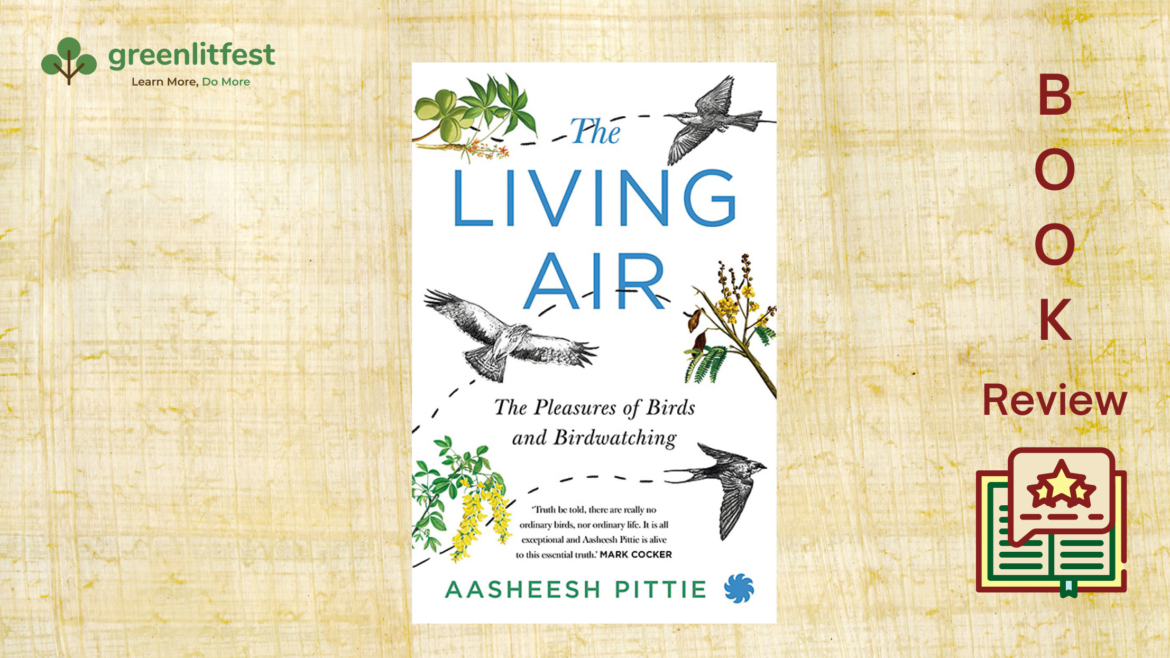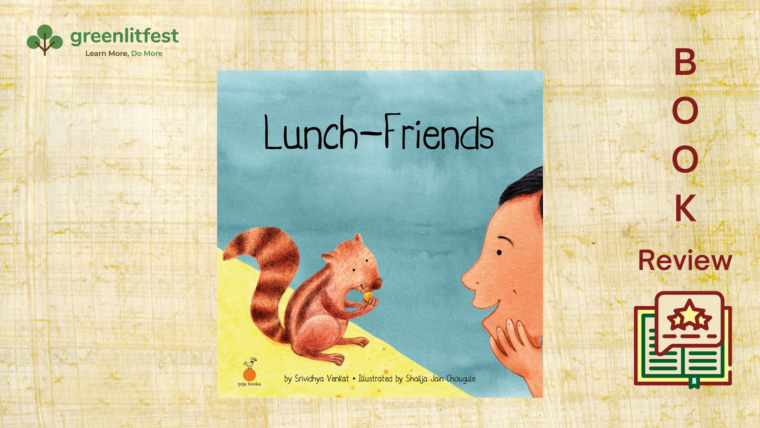Reviewed by Zai Whitaker
Once in a while a spectacular natural history book comes along, and The Living Air: The Pleasures of Birds and Birdwatching is one of them. Aasheesh Pittie is in that category of ornithologists who are also good writers; who have not only seen the rare Jerdon’s Courser but describe the incident in a way that makes you want to dip into his book again and again.
This book is a collection of 47 short pieces, and is divided into the following sections: Birds (mostly experiences with a particular species or individual), Birding, Birders, and My Kind of Birding. Each one is a gem; a meshing of interesting facts (bird and other), fine language, and observation. And, I must add, humour: such as the description of the ruffled fur of a mongoose: “as if it had had a vigorous Turkish towel rubdown after a dipping.” There are also moments of eco-philosophy; for instance, the question “What is there to relish in life if all is known and catalogued and the uniquely human sense of wonder lost?”
The book spoke to the teacher in me, and memories surfaced of struggles to find environmental lit to read with my students. Many were too didactic or too obvious, or interesting but short on language, or trying to be funny and failing, or pressing the obvious. The Living Air is perfect for both the classroom and home, and is sure to succeed in both spaces.
That Aasheesh Pittie is a field naturalist and not an armchair one, is obvious throughout the book, a point to be flagged in these times, when it is so easy to cast a net into the ‘net, and net rich, recyclable material. Pittie walks through field and forest, with fellow birders (including Richard Grimmet, no less), in the surroundings of his beloved Hyderabad or elsewhere. He is a meticulous record-keeper – he calls his system “a tad elaborate” – starting with field notes that include date, place, weather, habitat, OBWs (other bird watchers) and more. These are then typed, filed, and numbered for cross-referencing. Mind you, the typing is done on single sheets for alphabetical assimilation… and there’s more, including digital storing, but by then my brain had lost it. The point is that one field sighting, either a Grey Wagtail from the kitchen window or a Great Indian Bustard, becomes an important scientific resource rather than a random notebook entry, and is squeezed for all its worth.
Obviously, much scribbling goes on in the field, maybe using one of the OBWs backs as a writing table, because there’s a detail in the observations that would need notes – or maybe a phenomenal memory – while birding. Here is an example from Pittie’s description of a gang of sparrows hanging out in the family compound: “Twenty to thirty cock and hen sparrows would gather on the ground between the henna hedge and the goshala, in an apparently meaningless knot, till a few of them shook off their listlessness by puffing up and ruffling their feathers, twisting this way and that on a patch of particularly soft sand, forming in the process a tiny rim of the fine powder around them, passing through their feathers, suffocating the lice, mites, and other parasites. Dusting also absorbs excess oil from the feathers, which are then easily cleaned by preening, and restored to the flexibility required for aerodynamic flight.”
Naturally, the first section I hurried to was Birders, to ensure my father Zafar Futehally was one of them. He is, which (for me personally) is an added feather in the book’s cap. Actually, Pittie’s writing has many of Baba’s features, particularly the humility and humour. Now could there be a greater compliment?
Author: Aasheesh Pittie
Publisher: Juggernaut (paperback, published April 2023, pp 296, Rs 599)
Zai Whitaker is the Managing Trustee of the Madras Crocodile Bank, which she co-founded in 1976 with ex-husband Rom Whitaker. She has written over twenty books, most of them on the environment, for children. They include Andamans Boy, Kali and the Rat Snake and, recently, Salim Ali for Children and Termite Fry. She has also been a teacher, and principal of two schools.



